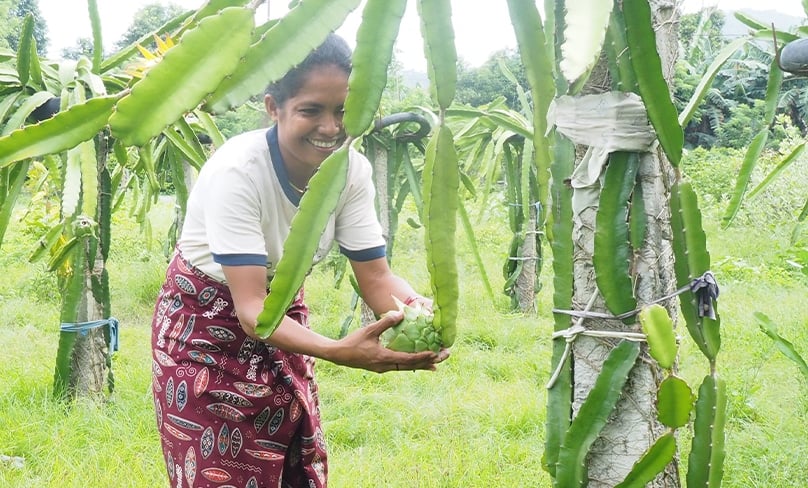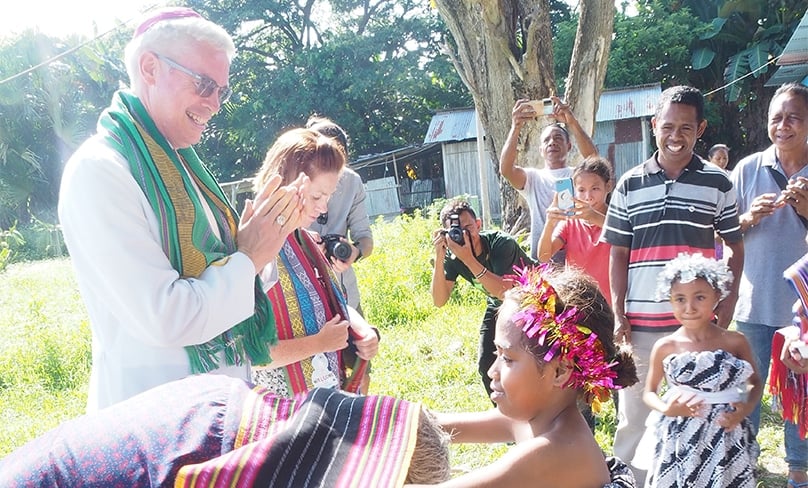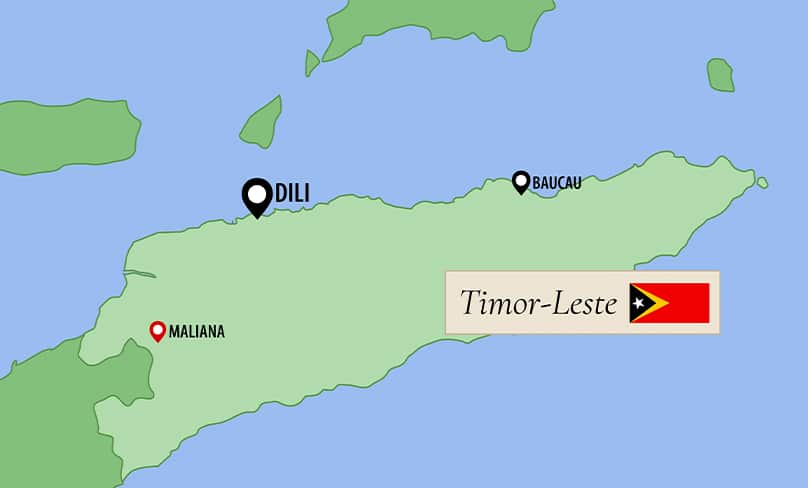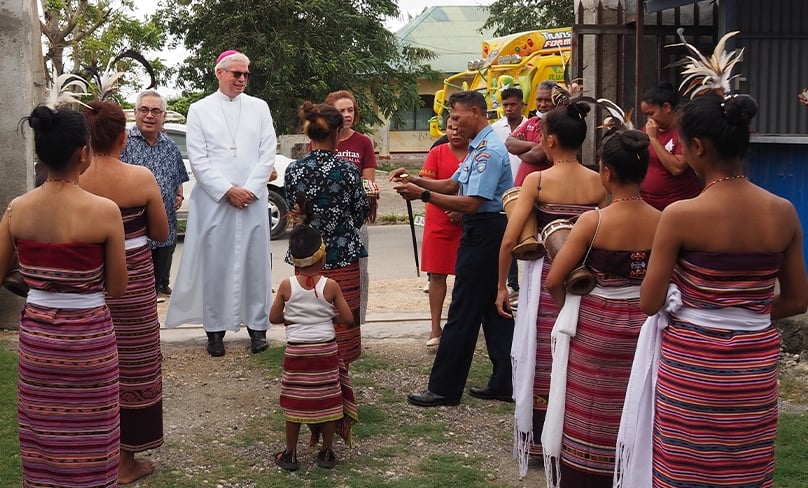
Maliana is one of the most picturesque postcard provinces of Timor-Leste. Beautiful, sweeping coastlines butted up against dense, green mountain regions.
Yet the natural beauty paints over a darker truth of pain and poverty faced by local villagers, many of whom are unsure where to find food to feed their families.
With Maliana neighbouring Indonesian West Timor, Country Director for Caritas Australia, Fernando Peres, says the local villagers are the target of human traffickers, who use the dire situation of locals to their advantage, promising them a better life waiting for them just across the border.
“In the province they financially support a boarding school for young girls, who would have potentially been sold to human traffickers by desperate parents …”
“They’re extremely vulnerable to the influences of people coming in from outside, of human traffickers coming in with promises that you can go to West Timor and there is a better life there,” Mr Peres said.
Caritas Australia is an integral part in the fight against modern slavery in Maliana.
In the province they financially support a boarding school for young girls, who would have potentially been sold to human traffickers by desperate parents faced with the impossible choice between slavery or potential death for their children.

“Life would be difficult for these families in terms of food security, they would have less food, income, disposable income, or income to be able to respond to somethings, that they need urgently. It would be very difficult,” Mr Peres said.
Next door to the boarding school is a village financially supported by Caritas Australia as part of their Sustainable Livelihoods and Disaster Risk Reduction (SLDRR) program.
Its purpose: strengthening resilience and a community vulnerable to food insecurity through support in agriculture including small-scale water systems that provide much-needed irrigation.
“Caritas Australia CEO Kirsty Robertson says program partners facilitate technical training in horticulture and animal husbandry to vulnerable farmer groups.”
Part of the program includes health and vaccination information. However the focus is primarily delivered through initiatives to assist vulnerable farmers in the village increase their agricultural production, food security and household income.
Caritas Australia CEO Kirsty Robertson says program partners facilitate technical training in horticulture and animal husbandry to vulnerable farmer groups.
“To create long term sustainable change, communities really need to be at the forefront of designing what their future looks like,” Mrs Robertson said.

“Villages have manpower, they have knowledge about crops and how to grow them.What they are missing is seeds or access to water. This is where Caritas Australia, with the help of the Australian Catholic community, can really play a part.”
Caritas’s goal is sustainable change by setting up villages to care for themselves with the end goal a thriving, self-sustainable community. Once a community is self-sufficient, it allows Caritas to leave.
Another facet of the program is micro-loans which allow villagers to set up their own local businesses, aiming to create long term economic growth.
“Caritas Australia has provided her with the capital to start a business manufacturing small traditional pillows and selling fruit.”
Villager Francisca Gomez da Silva is the beneficiary of the savings and loans program, which has allowed her to support her four-year-old son.
Caritas Australia has provided her with the capital to start a business manufacturing small traditional pillows and selling fruit. Without this income, her and her son would be at the mercy of traffickers.
Visiting Maliana, Bishop Richard Umbers saw the impact Caritas Australia is having on the lives of the villagers, first hand.

“The work of Caritas, what makes them special, is that they are looking to really live out Catholic social teaching and that means in solidarity they are looking to address inequality, what could even be a sinful inequality between people of the rich and the poor,” he said.
This Lent, Bishop Richard is calling on all schools and students to look at the lives of our nearest neighbours and think about the giant impact a small sacrifice could have.
I think Project Compassion is something that everyone recognises. They see the purple box at Lent, and they say ‘Oh yes, put a few bucks in there.’
“But you see the immediate impact that has in people’s lives,” he said.
